Enhancements to YAML Pipelines
With this sprint, we are excited to announce the general availability of Azure Pipelines YAML CD features.
Features
Azure Pipelines
- Pipelines YAML CD features now generally available
- Service connections new UI as default experience
- Role-based access for service connections
- Showing associated CD pipeline info in CI pipeline
- Cross-project sharing of service connections is now public
- Pipeline resource version picker in the create run dialogue
Azure Pipelines
Pipelines YAML CD features now generally available
We’re excited to announce the general availability of the Azure Pipelines YAML CD features. We now offer a unified YAML experience so you can configure each of your pipelines to do CI, CD, or CI and CD together. YAML CD features introduces several new advanced features that are available for all organizations using multi-stage YAML pipelines. Some of the highlights include:
- Multi-stage YAML pipelines (for CI and CD)
- Approvals and checks on resources
- Environments and deployment strategies
- Kubernetes and Virtual Machine resources in environment
- Review apps for collaboration
- Refreshed UX for service connections
- Resources in YAML pipelines
If you’re ready to start building, check out the documentation or blog for building multi-stage CI/CD pipelines.
Service connections new UI as default experience
In this sprint, we are making the new service connections UI the default experience and the old service connections UI will no longer be available. For the past six months, we have provided a new UI to service connections as a preview feature. Based on feedback we received from the customers, we added various features and are now ready to make it the mainstream experience for all users.
New service connections UI is built on modern design standards and it comes with various critical features to support multi-stage YAML CD pipelines such as approvals, authorizations, and cross-project sharing.
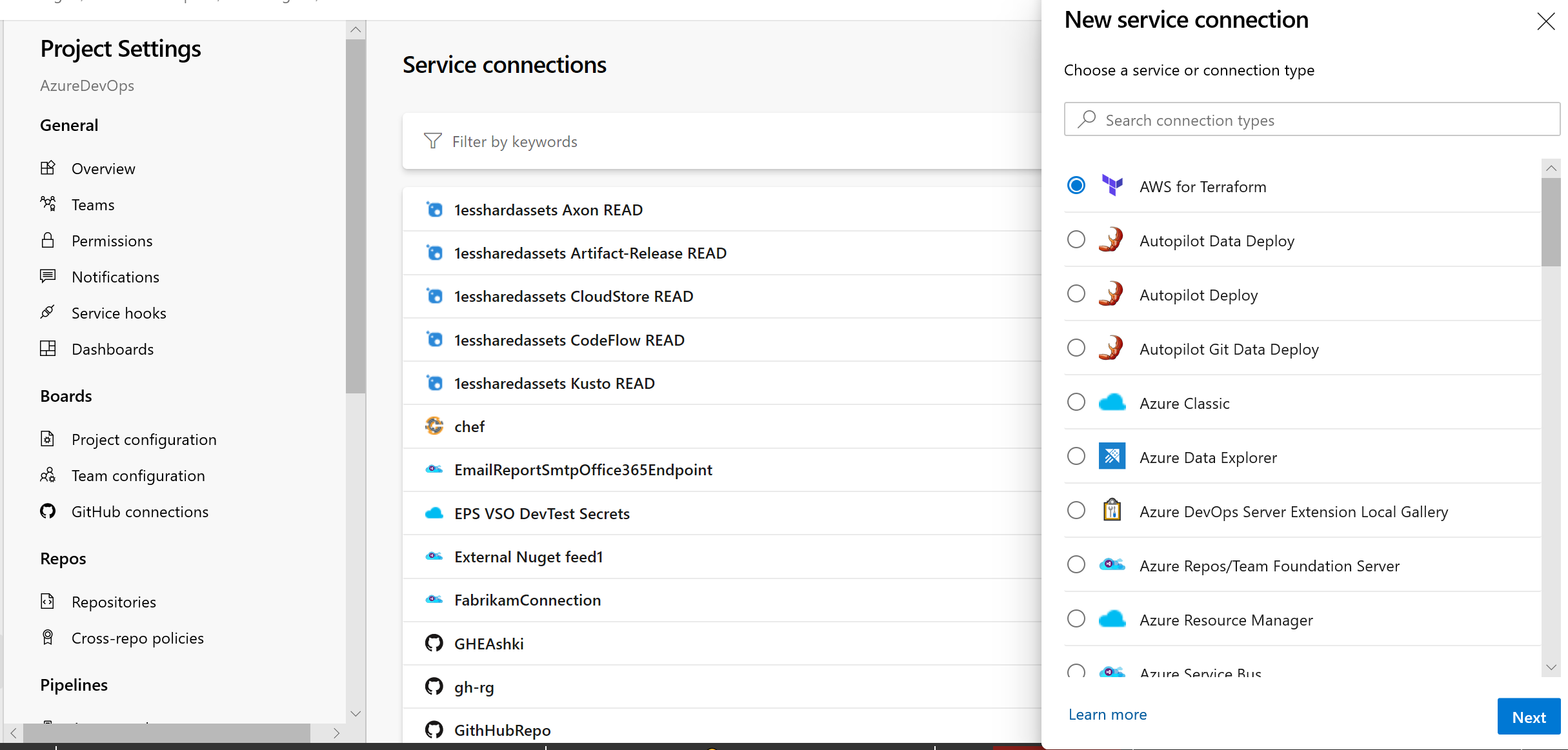
Learn more about service connections here.
Role-based access for service connections
In this sprint, we have added role-based access for service connections. Previously, service connection security could only be managed through predefined Azure DevOps groups such as Endpoint administrators and Endpoint Creators.
As part of this work, we have introduced the new roles of Reader, User, Creator and Administrator. You can set these roles via the service connections page in your project and these are inherited by the individual connections. And in each service connection you have the option to turn inheritance on or off and override the roles in the scope of the service connection.
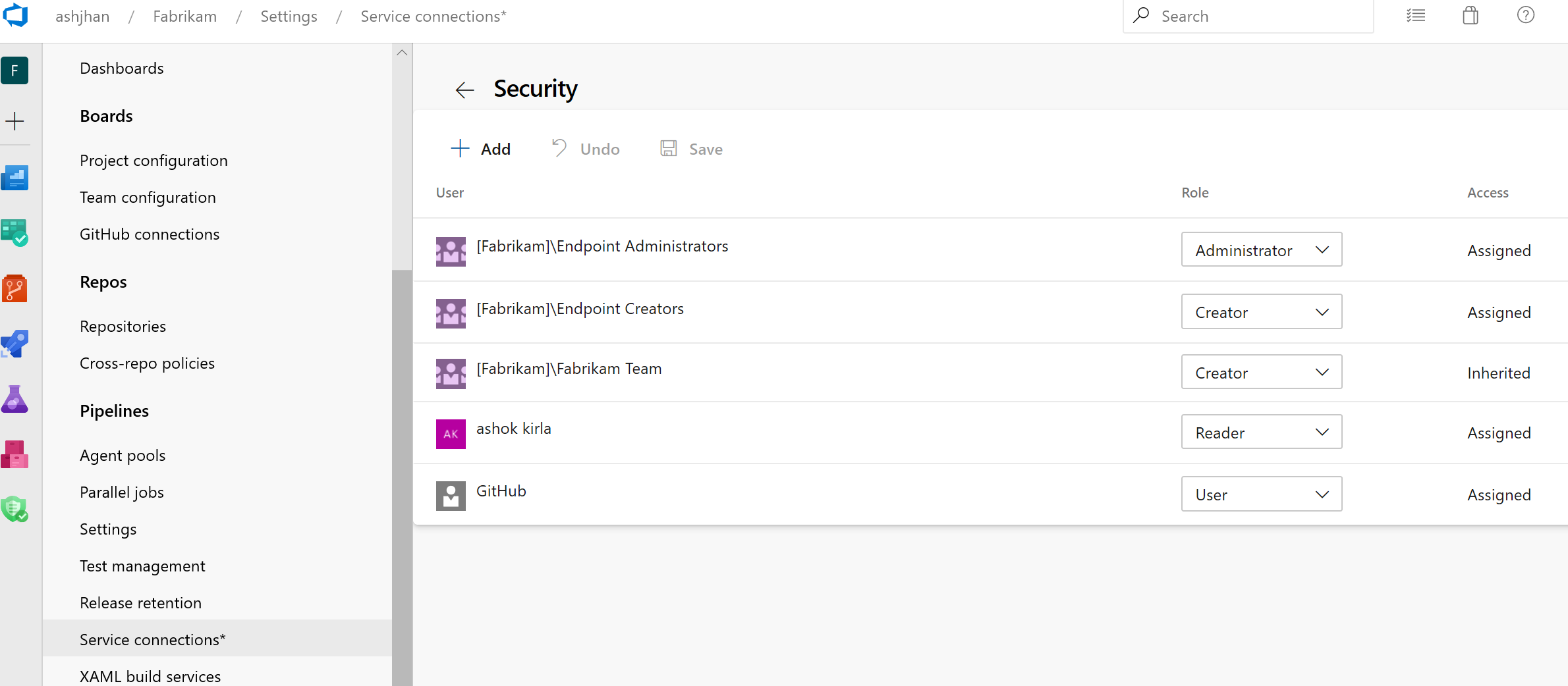
Learn more about service connections security here.
Showing associated CD pipelines info in CI pipelines
Also in this sprint we have added support to the CD YAML pipelines details where the CI pipelines are referred to as pipeline resources. In your CI pipeline run view, you will now see a new 'Associated pipelines' tab where you can find all the pipeline runs that consume your pipeline and artifacts from it.
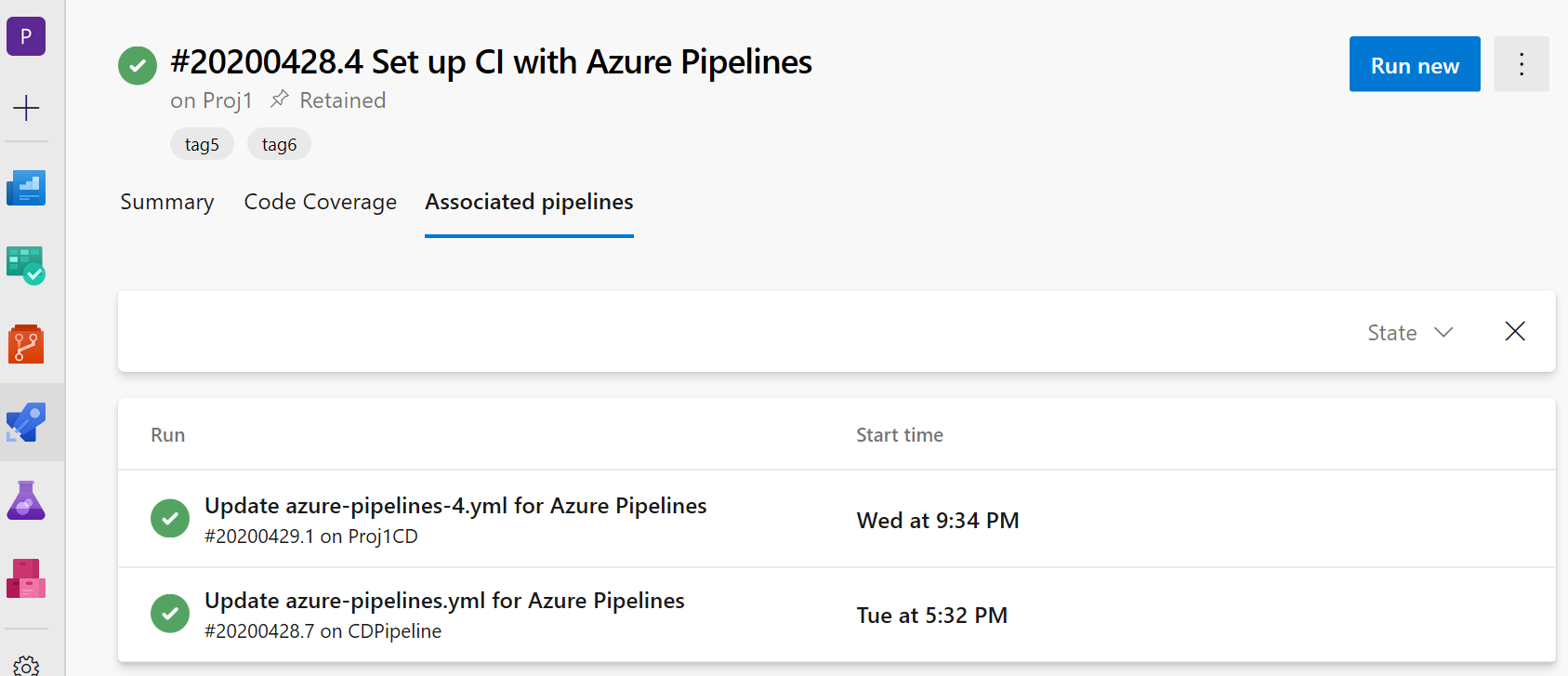
Cross-project sharing of service connections is now public
In this sprint we are enabling support for service connection sharing across projects. For the past three months, this feature has been in private preview and many customers have provided valuable feedback on the feature.
Thank you for your support. You can now share your service connections with your projects safely and securely.
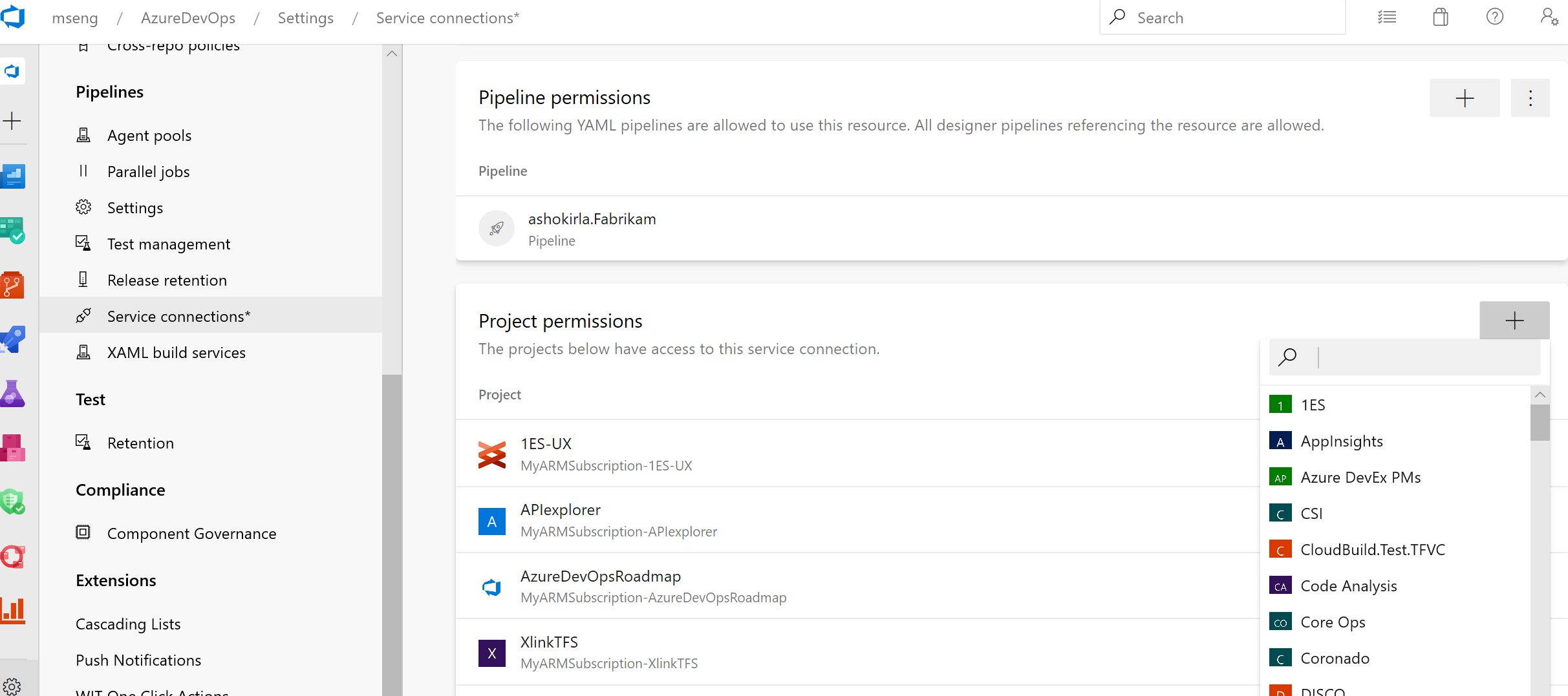
Learn more about service connections sharing here.
Pipeline resource version picker in the create run dialogue
In this sprint, as part of multi-stage CD YAML pipelines, we have added the ability to manually pick up pipeline resource versions in the create run dialogue. If you consume a pipeline as a resource in another pipeline, you can now pick the version of that pipeline when creating a run.
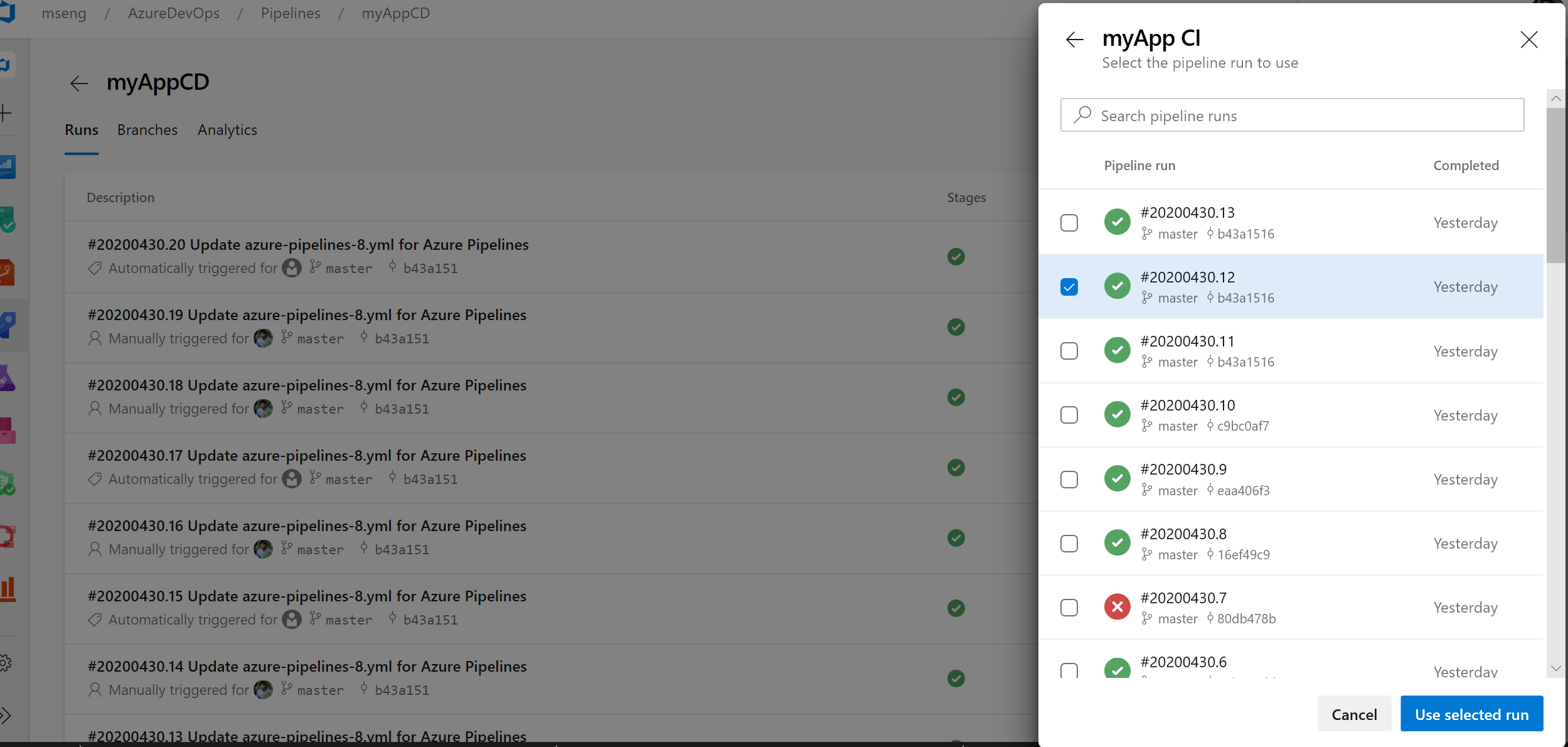
Next steps
Note
These features will roll out over the next two to three weeks.
Head over to Azure DevOps and take a look.
How to provide feedback
We would love to hear what you think about these features. Use the help menu to report a problem or provide a suggestion.
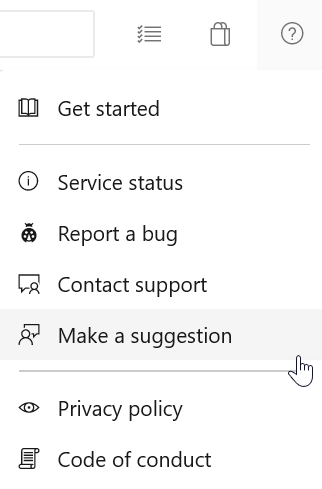
You can also get advice and your questions answered by the community on Stack Overflow.